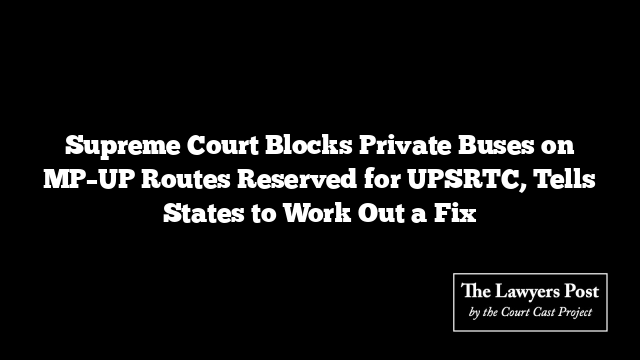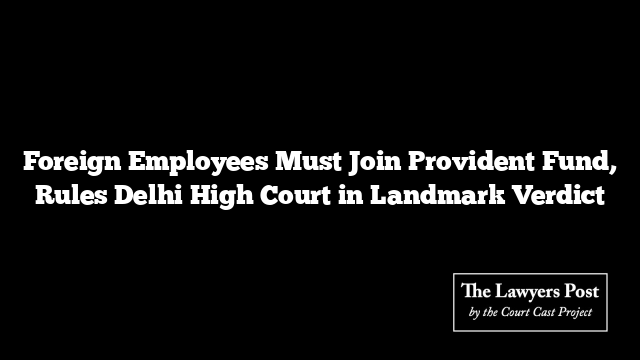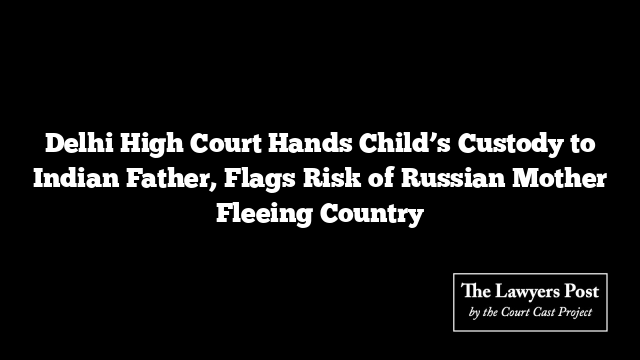The Supreme Court has drawn a firm line through the highways connecting Madhya Pradesh and Uttar Pradesh, ruling that private bus operators cannot ply on routes already notified for the Uttar Pradesh State Road Transport Corporation (UPSRTC).
A Bench of Justices Dipankar Datta and Augustine George Masih held that reciprocal transport agreements between States cannot sidestep the Motor Vehicles Act’s Chapter VI provisions, which reserve certain routes exclusively for State-run undertakings.
The ruling overturned several Madhya Pradesh High Court orders that had instructed Uttar Pradesh authorities to countersign permits issued to private operators by Madhya Pradesh’s State Transport Authority. The apex court declared those orders invalid — but with a note of realism. Blocking private buses altogether, it said, might inconvenience passengers, urging both States to sit together and find a workable administrative solution.
“These being matters of policy, should be left to both the States to decide,” the Bench said, calling for cooperation rather than confrontation.
The Long Road to Court
The dispute stemmed from a 2006 reciprocal transport pact between Madhya Pradesh and Uttar Pradesh under Section 88 of the Motor Vehicles Act. The pact divided routes into two lists: Schedule A for private operators and Schedule B for the now-defunct Madhya Pradesh State Road Transport Corporation (MPSRTC).
When the MPSRTC shut down, private bus operators claimed the Schedule B routes were up for grabs and applied for permits. Madhya Pradesh granted them temporary permission, but Uttar Pradesh refused to countersign — sparking a flurry of petitions before the High Court, which ultimately ordered UP to comply.
UPSRTC took the fight to the Supreme Court, arguing that private buses cannot legally operate even on a fragment of a route notified for a State transport undertaking. The Court agreed, reaffirming that Chapter VI — which governs nationalisation schemes and reserved routes — trumps Chapter V, which deals with general permits and reciprocal agreements.
Dialogue, Not Deadlock
While drawing a legal boundary, the Court acknowledged the practical concerns of commuters stranded between State laws and administrative stalemates. It asked the principal secretaries of both States’ Transport Departments to meet within three months to explore solutions that protect both legal consistency and public convenience.
The judges suggested that if the MPSRTC has indeed ceased to exist, Madhya Pradesh and Uttar Pradesh could consider amending their 2006 agreement — possibly opening the door for limited private participation on the old State-run routes.
“If the transport authorities of MP satisfy those of UP that the MPSRTC has been wound up and cannot ply buses, an appropriate decision may be taken,” the Bench noted.
By setting aside the High Court’s directives and dismissing pending petitions, the Supreme Court’s judgment restores UPSRTC’s monopoly over its notified routes — while leaving a small window open for cooperative reform through inter-State negotiation rather than courtroom decrees.





